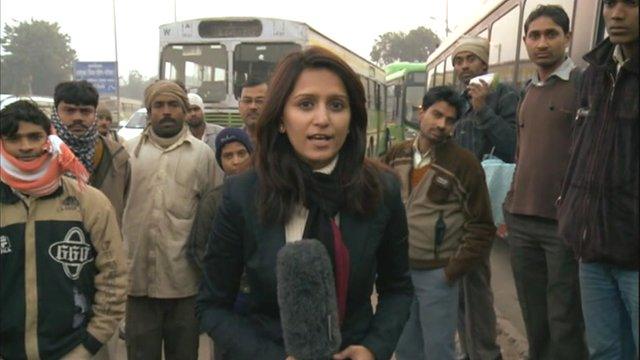India victim in 2012 Delhi gang rape named by mother
- Published
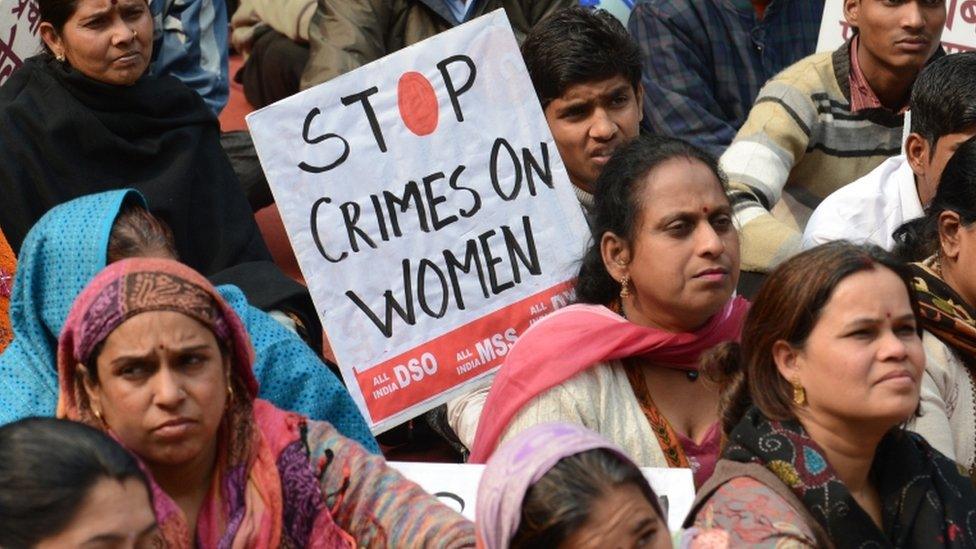
The gang rape caused international outrage
The mother of a student who died after being gang-raped on a bus in Delhi has publicly revealed her daughter's name.
Asha Singh told a crowd on Wednesday that she felt "no shame" in announcing her daughter's name: "Her name was Jyoti Singh."
The 23-year-old physiotherapy student died after being brutally raped by six men on a moving bus in 2012, causing global outrage.
Rape victims cannot be named under Indian law.
Their identities are often hidden in a bid to protect them from being shunned in society.
How life changed for victim's family
Friend recounts Delhi rape trauma
"I say this in front of you all that her name was Jyoti Singh," Asha Singh said at a public gathering in Delhi, three years to the day of the attack.
"There is no need for us to feel any shame. It is the perpetrators of heinous crimes who must feel ashamed of themselves."

Case timeline
16 December 2012: A 23-year-old physiotherapy student is gang-raped by six men on a bus in Delhi, her male friend is beaten up and the pair are thrown out after the brutal assault
17 December: Key accused Ram Singh, the bus driver, is arrested. Over the next few days, his brother Mukesh Singh, gym instructor Vinay Sharma, fruit seller Pawan Gupta, a helper on the bus Akshay Thakur, and the 17-year-old juvenile, who cannot be named, are arrested.
29 December: The victim dies in hospital in Singapore from injuries sustained during the assault; body flown back to Delhi
30 December: Cremated in Delhi under tight police security
11 March 2013: Ram Singh dies in Tihar jail; police say he hanged himself, but defence lawyers and his family allege he was murdered
31 August: The juvenile is found guilty and sentenced to three years in a reform facility
13 September: The four adult defendants are convicted and given the death penalty by the trial court
13 March 2014: The Delhi high court confirms the death sentence
March - June: The convicts appeal in the Supreme Court and the death sentences are put on hold until the court takes a decision

Ms Singh was attacked on board a bus after watching a film in south Delhi with a male friend. Police said she was raped for almost an hour and beaten with iron bars.
The attack sparked violent public protests that left one police officer dead.
Four men were convicted of the crime and handed the death penalty in 2014.
One died in jail in March while another, aged 17 at the time, is set to be released after serving three years in a reform facility - the maximum term possible for a juvenile in India.
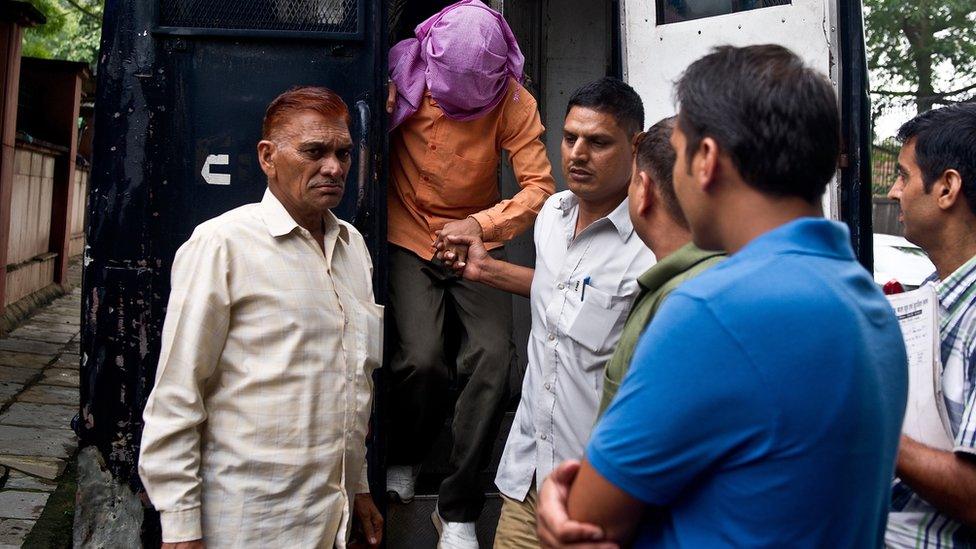
Under Indian law, the identity of juvenile offenders cannot be revealed
The victim's father on Wednesday condemned the decision to release the minor, saying: "Almost every day we read about even small girls being raped. If criminals like him are let off I fear what will happen to society."
Many called for him to be tried as an adult at the time.
India recorded over 36,000 rape cases in 2014, with 2,096 in Delhi. Experts say the numbers are likely to be higher.
- Published20 March 2020
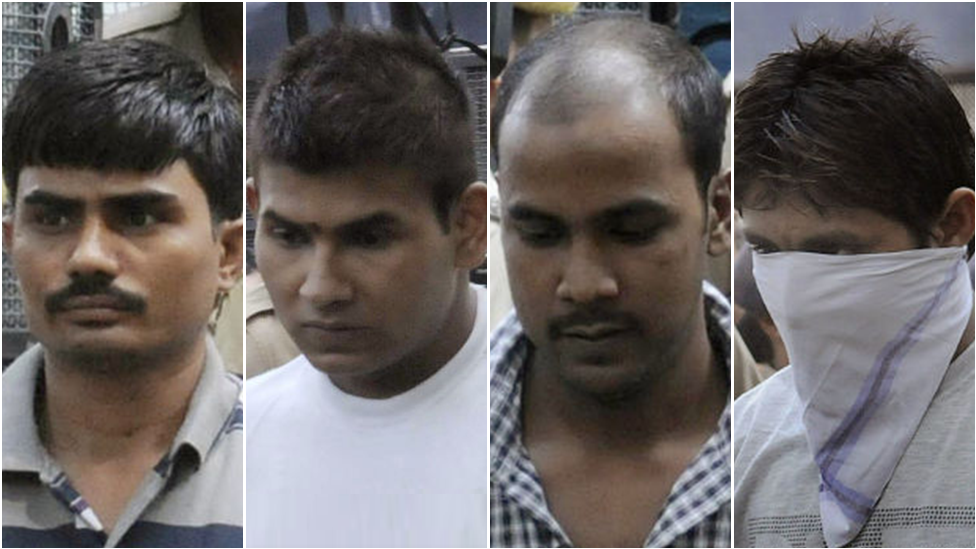
- Published15 December 2015
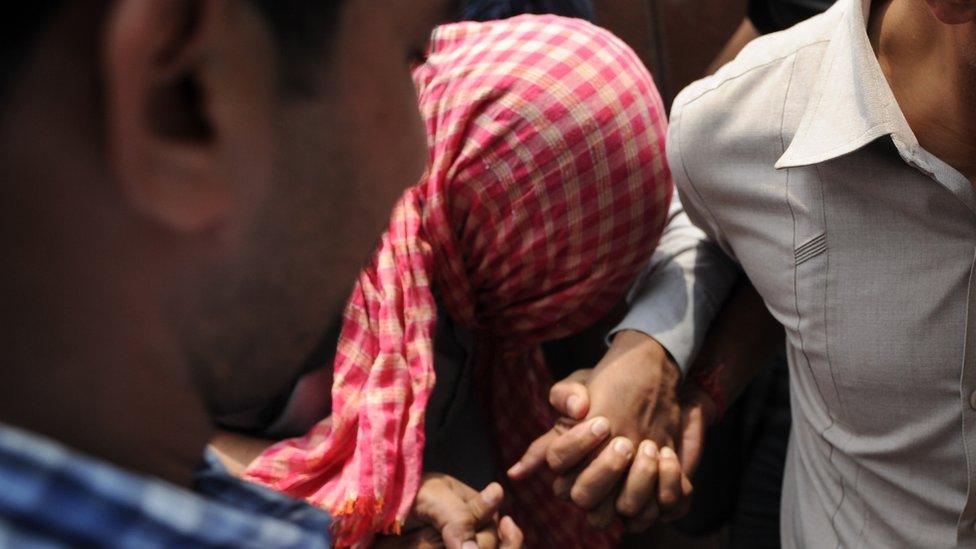
- Published16 December 2013
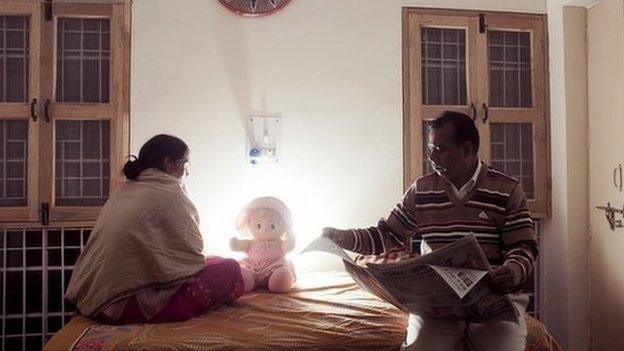
- Published3 January 2013
